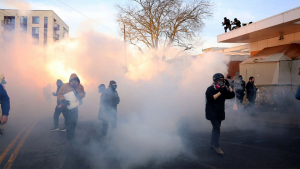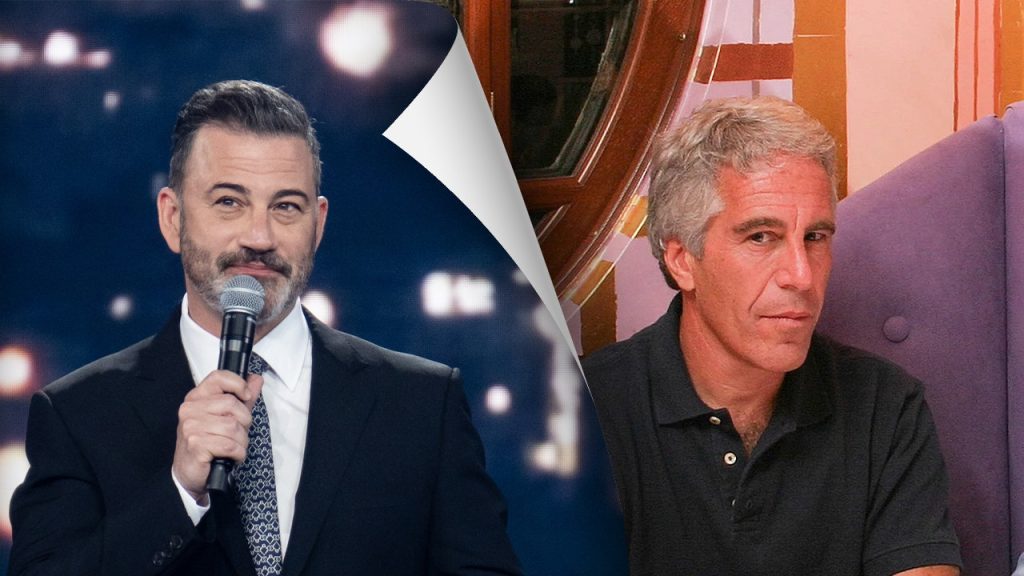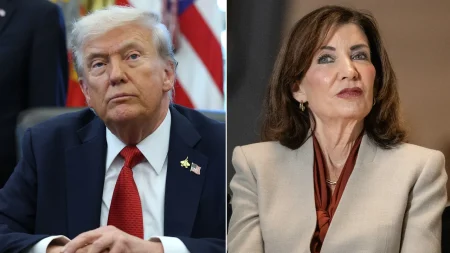Disney Cancels Jimmy Kimmel: The Controversy and Political Fallout
In a surprising turn of events, late-night host Jimmy Kimmel was recently canceled by Disney following controversial comments about Charlie Kirk, sparking a heated political debate that has drawn in high-profile figures from Senate Minority Leader Chuck Schumer to former President Donald Trump. The cancellation came after Nexstar Media Group, which owns hundreds of television stations, announced it would pull “Jimmy Kimmel Live!” from its ABC affiliates “for the foreseeable future,” replacing it with alternative programming. The media group cited Kimmel’s comments about the alleged assassination attempt on conservative commentator Charlie Kirk as “offensive and insensitive at a critical time in our national political discourse.” Nexstar’s broadcasting chief Andrew Alford further explained that continuing to provide Kimmel with a broadcast platform was “simply not in the public interest at the current time,” emphasizing their decision as an effort to “let cooler heads prevail” and encourage a return to “respectful, constructive dialogue” across the political spectrum.
The controversy originated from Kimmel’s Monday night show when he accused conservatives of reaching “new lows” in their attempts to distance themselves from Tyler Robinson, Kirk’s alleged would-be assassin. “We hit some new lows over the weekend with the MAGA gang desperately trying to characterize this kid who murdered Charlie Kirk as anything other than one of them and doing everything they can to score political points from it,” Kimmel stated during his broadcast. These comments apparently crossed a line for Nexstar, which took decisive action by removing his show from their networks. The decision has received support from some quarters, including FCC Commissioner Brendan Carr, who applauded local television stations for “standing up to serve the interests of their community” by taking such action.
The cancellation has created strange bedfellows and unexpected theories, with Senator Chuck Schumer raising eyebrows by suggesting on social media that the Epstein connection might be “the real reason” behind Kimmel’s removal from the airwaves. “IS EPSTEIN THE REAL REASON TRUMP HAD KIMMEL CANCELED?!” Schumer posted on X (formerly Twitter), alongside a screenshot of a New York Times article mentioning how popular late-night hosts, including Kimmel, had used the newly released Epstein documents to criticize Trump over his alleged association with the disgraced financier. This provocative question from a high-ranking Democratic leader added another layer to the already complex situation, though when pressed for clarification, Schumer’s representatives did not provide additional details on what exactly the Senator was implying with his post.
Former President Donald Trump, speaking during a visit to the United Kingdom, offered his own perspective on Kimmel’s cancellation, framing it primarily as a business decision rather than a political one. “Jimmy Kimmel was fired ’cause he had bad ratings more than anything else and he said a horrible thing about a great gentleman known as Charlie Kirk,” Trump told reporters during a press conference alongside UK Prime Minister Keir Starmer. The former president didn’t hold back in his assessment of Kimmel’s talents, adding, “Jimmy Kimmel is not a talented person, he had very bad ratings and they shoulda fired him a long time ago. He was fired for lack of talent.” Trump later celebrated the news on his Truth Social platform, calling the cancellation “great news for America,” making it clear he viewed the development as a positive outcome.
The controversy highlights the increasingly tense relationship between entertainment, media, and politics in America. Kimmel, like many late-night hosts, has seen his ratings decline over the past decade, reportedly losing 72% of viewers in key demographics. This downward trend reflects broader changes in television viewing habits but also suggests potential audience fatigue with politically charged content that has become a staple of late-night programming. The sharp division over Kimmel’s cancellation mirrors the polarization in American society, with supporters seeing it as a justified response to inappropriate comments and critics viewing it as an attack on free speech and an example of conservative pressure influencing media decisions.
This incident raises important questions about the boundaries of political commentary in entertainment, the responsibilities of broadcasters to their communities, and the complex dynamics between media corporations, political figures, and public discourse. As networks navigate these challenging waters, they must balance their commercial interests with their role in fostering healthy democratic debate. The Kimmel controversy serves as a reminder that in today’s highly charged political climate, even late-night comedy exists in a precarious space where jokes and commentary can have significant real-world consequences. Whether this marks a temporary setback for Kimmel or a more permanent shift in late-night television’s approach to political content remains to be seen, but it certainly reflects the ongoing tensions between entertainment, politics, and corporate interests in contemporary America.














